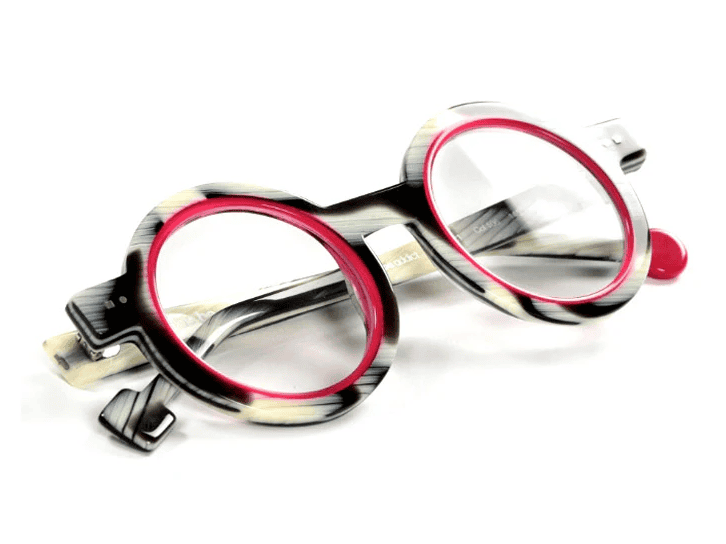What Are Reading Glasses?
Reading glasses are a practical solution for those who experience difficulty focusing on close-up text or objects, a common issue as we age, known as presbyopia. They are specifically designed to provide the additional magnification needed to see clearly up close. Typically, reading glasses are available in varying strengths, indicated by a diopter number, which corresponds to the level of magnification required.
For many, reading glasses are a necessity to enjoy activities such as reading books, browsing on a smartphone, or engaging in any task that involves close vision. But what if you didn’t have to sacrifice your personal style to gain this functionality?
Turning Any Frame Into Reading Glasses
One of the greatest aspects of eyewear today is the ability to customize lenses to fit virtually any frame. This means you no longer need to rely on generic, mass-produced over-the-counter reading glasses that may not align with your style preferences or the unique collection of frames you’ve curated. Instead, you can transform your favorite independent frames into bespoke reading glasses that reflect your passion for quality and individuality.
Whether you’re a fan of bold, statement frames, minimalist designs, or vintage classics, custom lenses can be crafted to suit your reading needs, ensuring that your unique style is always at the forefront. By choosing custom lenses, you retain the full functionality of reading glasses without compromising the aesthetics that make your eyewear special.
Finding the Right Lab or Optical Boutique
If you decide to turn a unique pair of frames into readers, it’s essential to find a specialty lab or high-end optical boutique that will treat your frames with the respect and care they deserve. Not all optical shops are equipped or trained to handle high-end, independent frames, especially those that are part of a collectible or limited-edition collection.
A specialty lab or boutique will not only have the expertise to properly fit the lenses but will also understand the importance of preserving the integrity and value of your frames. These professionals appreciate the craftsmanship of independent eyewear and will ensure that your reading glasses maintain both their functionality and their artistic essence.
Merging Style With Function
For eyewear collectors and enthusiasts, every pair of glasses tells a story. The frames you choose are an extension of your personality, a reflection of your taste and identity. With the option to customize lenses, there’s no need to settle for off-the-shelf readers that don’t resonate with your style. Instead, you can have the best of both worlds: impeccable vision and frames that you’re passionate about.
Imagine pairing your favorite limited-edition frames with high-quality reading lenses. Not only do you maintain the integrity of your eyewear collection, but you also ensure that every piece in your collection serves a purpose, combining fashion with function seamlessly.
Reading glasses can be more than just a tool—they can be an opportunity to express your unique style while addressing your vision needs. By opting for custom lenses in your independent frames, you create reading glasses that are both functional and a reflection of your individuality. For the eyewear enthusiast, this approach allows you to continue enjoying the artistry and craftsmanship of your favorite frames, even as your vision evolves. Just remember, when converting your treasured frames into readers, trust only those who will honor their value—seek out specialty labs and high-end optical boutiques that understand the importance of preserving your eyewear’s unique story.
Discover independent eyewear with Project Spex. Every Friday, we deliver the latest in collectible eyewear and your favorite independent designers.
Sign up now and never miss a thing!
About The Author:

Will Benjamin is an advocate for independent eyewear and one of the driving forces behind Project Spex. With a passion for unique, collectible, and limited-edition eyewear, Will aims to inspire people to build their own collections through Project Spex, while supporting the success of independent opticals.


